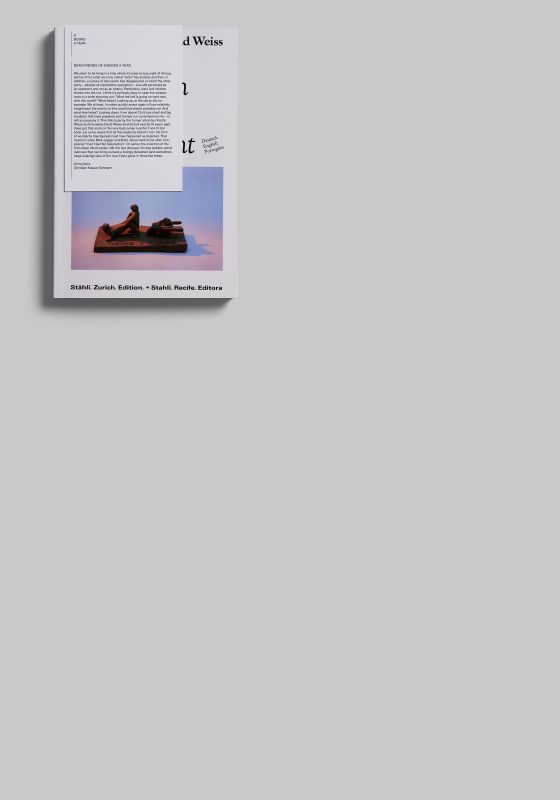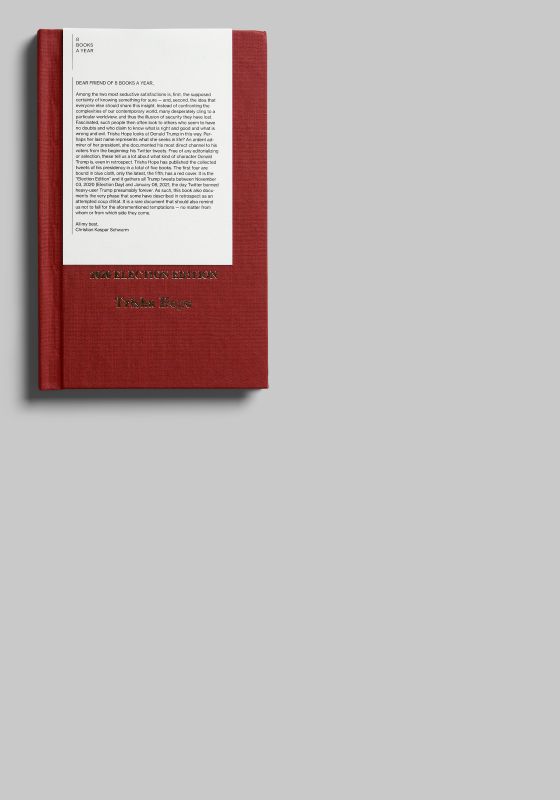JULY 2015
Eran Ben-Joseph
ReThinking a Lot:
The Design and Culture of Parking
MIT Press, 2012
DEAR FRIEND OF 8 BOOKS A YEAR,
Some months ago Hillary Clinton claimed she would become the future US president for all “everyday Americans”. Sounds down-to-earth, but what does this “everyday” mean? When politicians talk of “everyday people” they sometimes misuse this term, attempting to justify a kind of resistance to looking at things from different angles and to discussing them in a more profound way. Or – you could say – it betrays a lack of willingness to see things in all their complexity. On the other hand “everyday” can mean rather the opposite: It has the potential to open our eyes to the “everyday wonders” of life. Do I seem cliché now, talking about stopping to smell the roses on your way to work? Not necessarily, since even our least subtle fellows appreciate a rose’s beauty. But take the Swiss artists Fischli & Weiss who, for decades, took hundreds of photos of airports – anonymous airfields with planes being loaded and unloaded, busses and trucks driving around. They might seem boring at first sight, but they simply aren’t. Instead they show technological and social microcosms, highly organized cross-border intersections and the backbones of one gigantic organism called global infrastructure. Boring? Not at all. So, being an “everyday human” could also mean becoming conscious of what is usually hidden. We can surprise ourselves by discovering the concepts, both the good and the failed ones, behind some structures we are confronted with every single day. Do you own a car? Where is it right now? What is it doing? Most probably, nothing. It’s parked.
All my best,
Christian Kaspar Schwarm
Eran Ben-Joseph
ReThinking a Lot:
The Design and Culture of Parking
MIT Press, 2012
Read InscriptionDEAR FRIEND OF 8 BOOKS A YEAR,
Some months ago Hillary Clinton claimed she would become the future US president for all “everyday Americans”. Sounds down-to-earth, but what does this “everyday” mean? When politicians talk of “everyday people” they sometimes misuse this term, attempting to justify a kind of resistance to looking at things from different angles and to discussing them in a more profound way. Or – you could say – it betrays a lack of willingness to see things in all their complexity. On the other hand “everyday” can mean rather the opposite: It has the potential to open our eyes to the “everyday wonders” of life. Do I seem cliché now, talking about stopping to smell the roses on your way to work? Not necessarily, since even our least subtle fellows appreciate a rose’s beauty. But take the Swiss artists Fischli & Weiss who, for decades, took hundreds of photos of airports – anonymous airfields with planes being loaded and unloaded, busses and trucks driving around. They might seem boring at first sight, but they simply aren’t. Instead they show technological and social microcosms, highly organized cross-border intersections and the backbones of one gigantic organism called global infrastructure. Boring? Not at all. So, being an “everyday human” could also mean becoming conscious of what is usually hidden. We can surprise ourselves by discovering the concepts, both the good and the failed ones, behind some structures we are confronted with every single day. Do you own a car? Where is it right now? What is it doing? Most probably, nothing. It’s parked.
All my best,
Christian Kaspar Schwarm












































